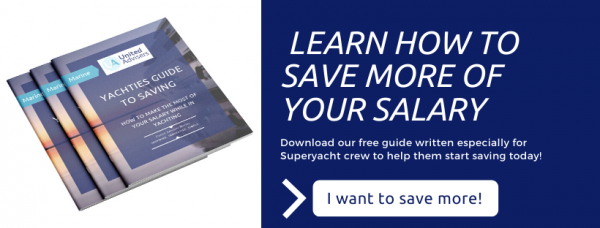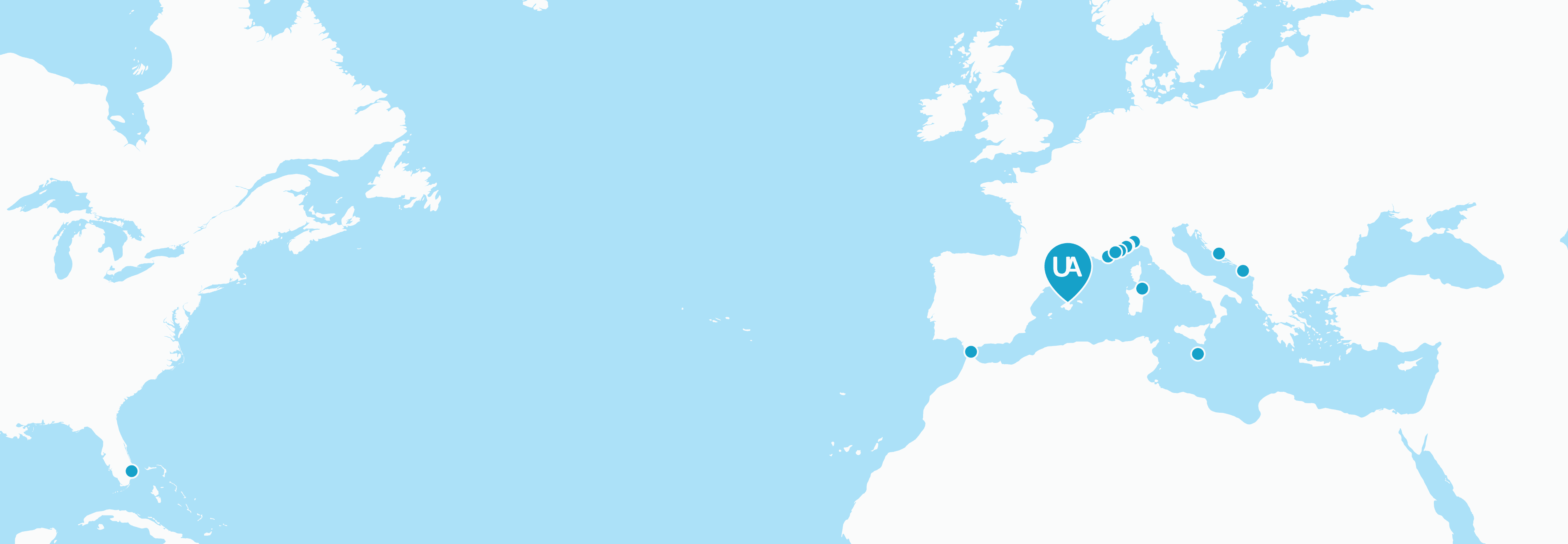24th Mar 2019
Beginners guide to saving and investing
Do you have money left at the end of the month? Unsure of what you should be investing in?
You are not alone.
The world of investment can seem daunting when you first dip your toe in the water. This is why we have created our yachties guide to saving and investing. Here we answer the most common questions that our yachting clients ask us.
What are the main types of investments?
Investments are normally broken into 4 core categories:
Most savers start with cash. It is recommended to keep 3 months salary as cash savings. Whilst you will earn less on this money, than if it were invested elsewhere, you have total flexibility over withdrawals. This is your emergency fund.
Property is often where people look to next. In certain areas, property investment can be a solid bet, especially if you are looking to move back to a land-based role in the coming years.
Bonds, which are also known as fixed interest securities, are a way of securing returns through lending your money to a company or government. Government bonds have traditionally been a stable way of investing cash. Company bonds can have higher risk and therefore often reward you with higher returns.
When thinking about shares don’t think of Wolf of Wall Street. Think about a stable return over a long-term investment. Shares prices do fluctuate. So you need to be prepared that they might have lower value when you cash them in.
There are additional ways that you might invest your money; collectables (which can include luxury items such as watches and handbags), currency (where you use the exchange rate to your advantage) and commodities (such as palm oil, corn or gold).
What is a portfolio?
This is what your mix of investments is called. A portfolio allows you to invest in multiple asset types. For example, you might want to invest 10% of your investment sum in high-risk assets, 20% in property and 70% in bonds to spread the overall risk.
What am I likely to get back on investments?
All investors are interested in their returns and these come in different forms depending on how you have chosen to invest your money.
- Shares pay out dividends
- You get interest on cash investments
- Bonds return yields
- Rent is paid out for your property
- Lump-sum pay outs when you sell your shares (if you make profit)
What about risk?
Risk is part of investment.
Just like in life, there is no investment that is 100% risk-free. Even if you chose to do nothing with your money and kept it hidden in your cabin, you’d be taking a risk. There is the risk that it would go missing, the risk that you’d forget your ‘safe’ hiding place and the risk that the currency would devalue and become worthless.
We work with you to help you understand your attitude to risk. If you’d like to talk about risk further get in touch with us.
Generally, the higher the risk, the higher the return. This is why so many investors choose to spread their investments. They will take a smaller stake and take a bigger risk. On occasion, the smaller, high-risk investment can yield greater returns than the larger, low-risk one. The key is here is that it isn’t guaranteed.
Why should I start investing?
Investments have a cumulative effect:

This is a simplification of compound interest but this is how it works if all other factors remain stable. This is why it generally pays to invest in your pension early or pay off your mortgage sooner. Interest earns more interest. This is bad for your mortgage and great for your investments.
It is better to start to put away a small sum regularly sooner rather than wait for your next pay increase to invest a larger sum in 2/3 years,
Have we missed a question?
Let us know if we haven’t answered your question on investment. Not only will we answer it but we will add it to this post so that the knowledge can be shared.




